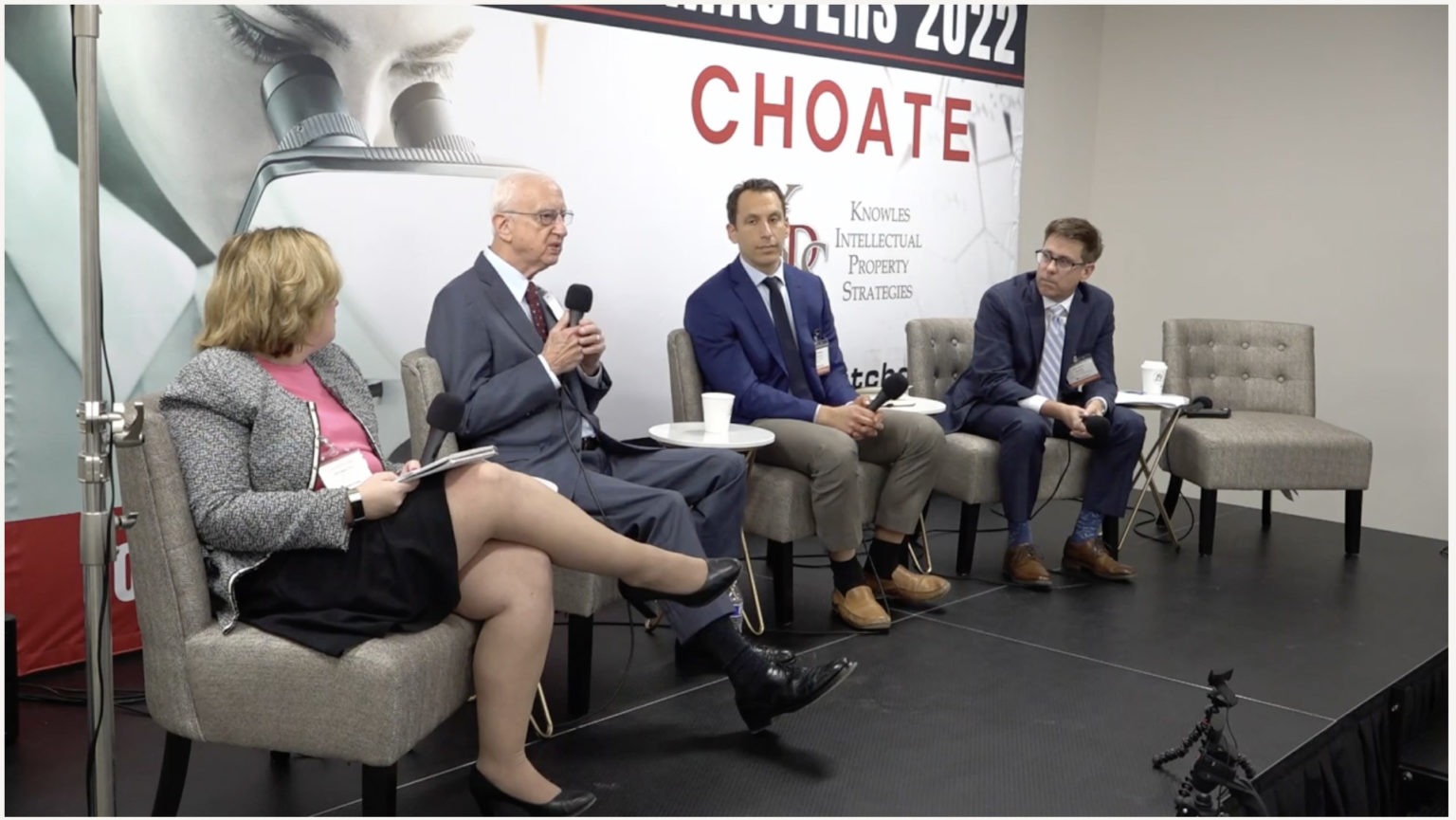Chamber’s GIPC Wants Details on Bayh-Dole Working Group
“This is a radical policy shift with no transparency, no process, and no insight as to how decisions got made.” – Brad Watts
The U.S. Chamber of Commerce’s Global Innovation Policy Center (GIPC) sent Freedom of Information Act (FOIA) requests on January 9 to the Department of Commerce and the National Institutes for Standards and Technology (NIST) regarding the Biden Administration’s recent Request for Information Regarding the Draft Interagency Guidance Framework for Considering the Exercise of March-In Rights.
The proposed framework was published in the Federal Register in December by NIST and the Department of Commerce and included suggestions on whether and when to exercise “march-in rights” under the Bayh-Dole Act that would arguably significantly broaden the criteria for compulsory licensing of patented technology developed with federal funding.
Under the proposed framework, an agency may consider “[a]t what price and on what terms has the product utilizing the subject invention been sold or offered for sale in the U.S.” and whether “the contractor or licensee [has] made the product available only to a narrow set of consumers or customers because of high pricing or other extenuating factors.”
The agency may also consider whether “the contractor or licensee has provided any justification for the product’s price or background on any extenuating factors which might be unreasonably limiting availability of the subject invention to consumers or customers.”
These are significant departures from previous interpretations of Bayh-Dole, which have never mentioned price as a factor.
The GIPC’s FOIA requests focus on obtaining information about the Interagency Working Group for Bayh-Dole referenced in the December Federal Register Notice (FRN) and, in particular, all communications between the Working Group and the Office of Senator Elizabeth Warren or the Office of Senator Bernie Sanders, as well as “any staff member, employee, or representative of Knowledge Economy International (KEI), the Initiative for Medicines, Access, and Knowledge (I-MAK), the Center for American Progress, Patients for Affordable Drugs, or Public Citizen.” The Working Group was formed in March 2023.
According to GIPC Vice President of Innovation Policy Brad Watts, the named individuals and organizations are on record as having pushed price controls or administrative actions against pharmaceutical companies and there is a concern about the Working Group’s potential interactions with such entities. The FOIA letters indicate that this information will benefit the public’s understanding of the composition of the Working Group and should also be expedited because “[t]he impact of these actions is far-reaching, requiring the urgent release of records in order to understand the Working Group’s activities and their potential impact on the Chamber’s members.”
At the time the FRN was published, the Chamber’s Executive Vice President and Chief Policy Officer, Neil Bradley, said the proposed framework “not only contradicts the law, it contradicts the conclusion of prior Republican and Democratic administrations” and “will result in fewer medical breakthroughs, ultimately hurting patients.”
In a phone call with IPWatchdog today, Watts also underscored that the framework would most negatively impact startups and small inventors. “This is going to have a massive chilling effect on true small startups,” Watts said. “Corporations will just shift R&D dollars to other products; the people really being hurt are small inventors and mom and pops in the lab. That’s the irony of all of this. ”
The Chamber further noted in its FOIA requests that U.S. Secretary of Commerce Gina Raimondo said at the time of the FRN’s publication that it was meant to solicit “continued stakeholder input to ultimately provide greater clarity on march-in rights and maintain a balance between incentivizing companies to innovate and making sure those innovations serve the American people,” and the details being requested represent “core information” that “has not been publicly disclosed.”
Watts said the GIPC and other pro-IP groups are especially concerned because the December request for information (RFI) was the first time since the announcement that the Working Group had been formed that anyone had heard anything about the Group’s operations. “No one heard about any meetings or comments they were soliciting and the next we heard was when the RFI got announced,” Watts explained. “This is a radical policy shift with no transparency, no process, and no insight as to how decisions got made.”
Watts added that the GIPC’s hope is that the framework will simply be withdrawn because there is significant doubt that it is even legal. “My initial read of the guidance is that this is beyond the scope of what’s authorized in the Bayh-Dole Act,” Watts said. Thus, even improvements following consideration of comments might not be enough.
Watts also said he hopes the agencies will take the FOIA requests seriously and that the Chamber will resort to legal action if necessary. “We expect speedy, expeditious answers. We’re not going to be slow walked.”
Image Source: Deposit Photos
Author: chrisdorney
Image ID: 107230770
Eileen McDermott
Eileen McDermott is the Editor-in-Chief of IPWatchdog.com. Eileen is a veteran IP and legal journalist, and no stranger to the intellectual property world, having held editorial and managerial positions at […see more]







